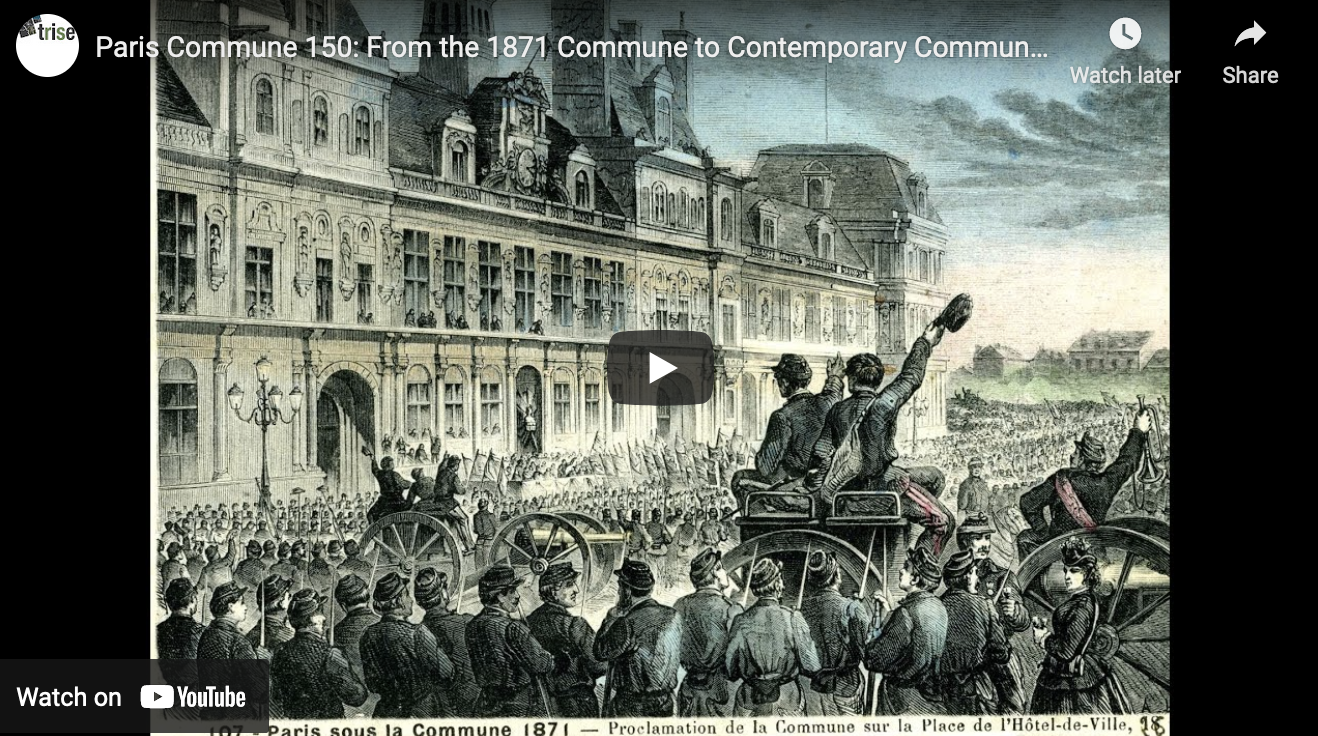The Paris Commune of 1871 was the biggest urban uprising and experience of self-organization of modern history. For those engaged in social and political change, this historic experience stands as the first example of the exercise of social and political power by the working class and underclass. To this day, it remains a vibrant and inspiring example of direct democracy and women emancipation all over the world.
This webinar organized by the Transnational Institute of Social Ecology (TRISE) brings together notable speakers who will articulate the lessons from the past and the opportunities today to move communities into a period of fundamental change. Such analysis and insights hopefully will help our societies to avoid going back to “business as usual” after the Covid-19 crisis and create new paths toward collective emancipation.
Speakers and Chair:
Magali Fricaudet is Coordinator of the UCLG Committee on Social Inclusion, Participatory Democracy and Human Rights. She is an active member of the Transnational Institute of Social Ecology and will be the Chair of the webinar.
Mitchell Abidor is a translator and writer of several books. Among his books are Communards: The Paris Commune of 1871 as told by Those Who Fought for It (MIA Publications, 2010) and Voice of the Paris Commune (PM Press, 2015). His talk will focus on the Commune itself, between myth and reality.
Dimitri Roussopoulos is the founder of the radical publishing house Black Rose Books. He is the author of several books including Political Ecology; Beyond Environmentalism (Black Rose Books, 1993) and The Rise of Cities (Black Rose Books, 2012). His talk will present the link between the Commune’s ideas and practices to its significance today.
Théo Rouhette is a social ecologist and activist. He is an active member of Transnational Institute of Social Ecology. His talk will present the current influence of the Commune imaginary in French social movements and municipalism.
Anna Kowarsch is an activist and member of the Jineolji Academy in Rojava. Her talk will discuss women’s autonomous organising in the context of building up communal structures of peoples’ self-administration in Rojava.






